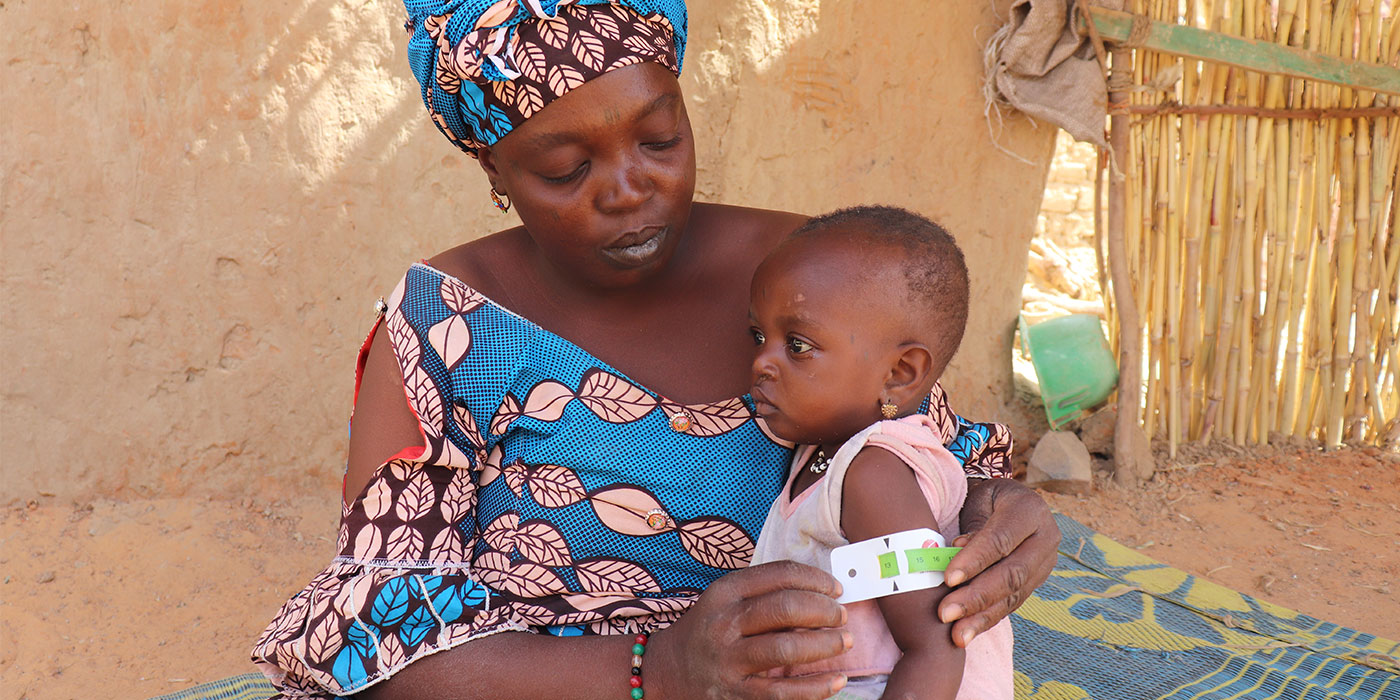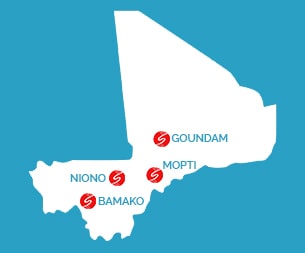Article from our Water, Sanitation and Hygiene Barometer 2021
By SOLIDARITÉS INTERNATIONAL’s Mali mission.
Since December 2020, SOLIDARITÉS INTERNATIONAL’s teams have been helping to fight malnutrition in the northern and central regions of Mali by improving access to water and sanitation in healthcare centres and informing families about malnutrition screening techniques.
Since 2012, Mali has been confronted with numerous security tensions, intercommunal conflicts and natural disasters. These recurrent crises have caused massive population displacements, putting increased pressure on the country’s limited resources and infrastructure.
Inadequate access to basic services, and especially to sufficient quantities of safe drinking water, has made fragile populations even more vulnerable to waterborne diseases and thus to malnutrition (read our article on page 38 to find out more about the connection between inadequate access to water and malnutrition).
In February 2020, food insecurity rates were well over 20% in regions hosting large numbers of displaced persons, such as Mopti (23.3%), Kidal (24.6%) and Gao (38.4%), in comparison with the national average of 16%.
In response to this crisis, SOLIDARITÉS INTERNATIONAL has implemented an integrated WASH and Nutrition program in the northern and central regions of Mali. Since late 2020, our teams have been working to improve access to water and sanitation in several healthcare centres, by distributing hygiene kits, handwashing systems and soap to parents of malnourished children. They are also informing and training women to detect acute malnutrition so that their child(ren) can be treated at the first signs of illness.
Hawa Mouché, 30 years old, mother of 4 children, lives in Echell village in North Mali
Mali
Context and action- 21.9 million inhabitants
- 186th out of 191 countries on the Human Development Index
- 449.855 people helped

“SOLIDARITÉS INTERNATIONAL’s teams trained us to screen our children for malnutrition. We screen children between the ages of 6 and 59 months. They showed us how to spot the signs of malnutrition in a child. They also explained how to measure his or her Mid-Upper Arm Circumference. They taught us that if the reading is in the green, the child is in good health, however if it is in the orange, the child has started to fall ill. If the reading is in the red, the child is already sick and we must immediately take him or her to the community health centre.
SOLIDARITÉS INTERNATIONAL also showed us how to test children for oedema: we hold both feet tightly against ourselves and count to three; if the child has malnutrition, there will be a mark on the skin. Since we received this training, our children are in better health, whereas before the course, they were often sick.”

